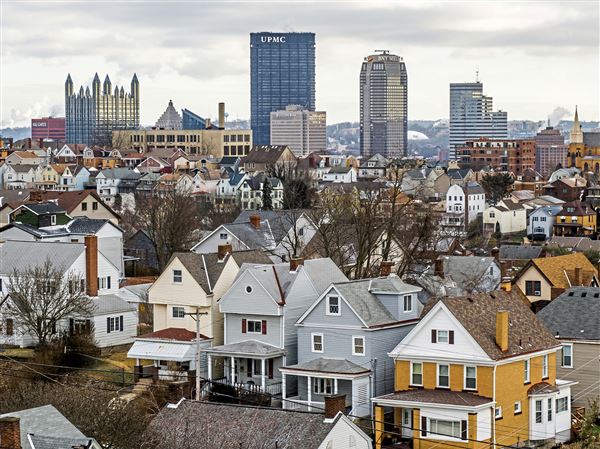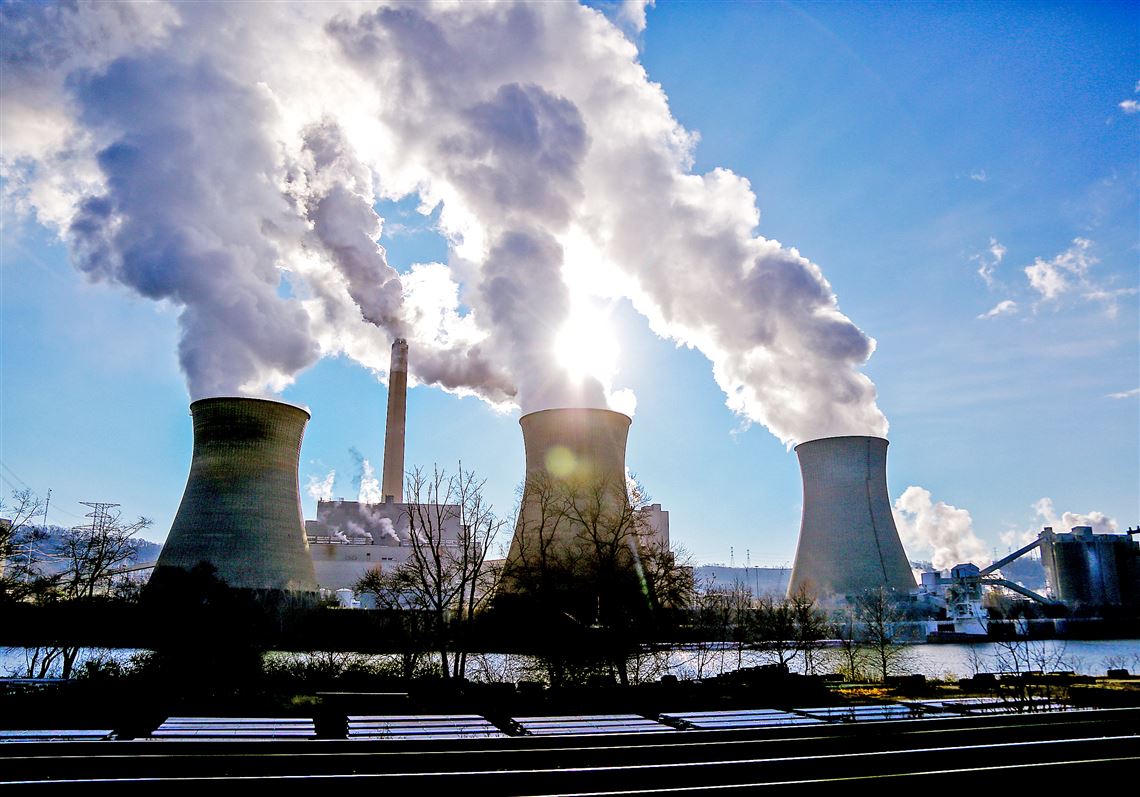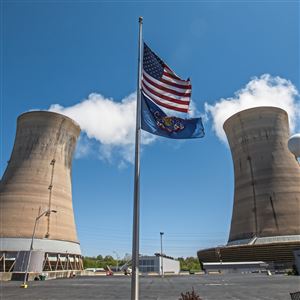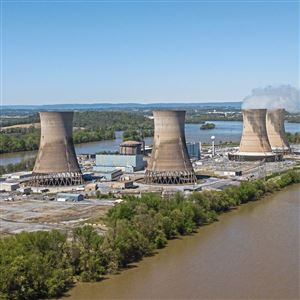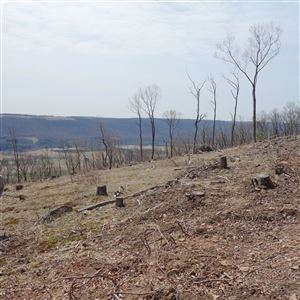HARRISBURG — The state Legislature took its first steps Tuesday to slow Gov. Tom Wolf’s plan to put a price on emissions of carbon dioxide from power plants, a key piece of his strategy for addressing climate change.
Members of the Republican-led state House and Senate introduced bills that would require the Democratic governor to get approval from the General Assembly before joining the Regional Greenhouse Gas Initiative, a market shared by Northeast and Mid-Atlantic states for reducing emissions of greenhouse gases from the electricity sector.
The legislation is one piece of a two-part strategy to hinder Mr. Wolf’s move to rely on executive authority to establish a carbon cap-and-trade program for Pennsylvania, House Speaker Mike Turzai, R-Marshall, told an oil and gas industry conference on Nov. 7.
The second piece is to sue.
“We will ultimately go to court,” he said, according to a recording of the remarks obtained by the Energy and Policy Institute, a fossil fuel and utility watchdog group, and shared with the Pittsburgh Post-Gazette.
“Likely federal court, not state court,” Mr. Turzai said. “They could argue that we’re not in the right court, but we know what the state Supreme Court’s makeup is.”
Five of the seven Pennsylvania Supreme Court justices are Democrats.
Mr. Wolf signed an executive order on Oct. 3 directing the state Department of Environmental Protection to draft regulations that would allow Pennsylvania to join the nine-state Regional Greenhouse Gas Initiative.
The bills’ sponsors Tuesday said they intend to make clear that Mr. Wolf does not have the authority to craft a carbon fee program and link it with the regional market. They said the fees that power plants would pay for their emissions are taxes.
“A unilateral attempt by the governor to implement such a tax without legislative approval simply should not occur,” Sen. Joe Pittman, R-Indiana, said.
A battle over authority
The Wolf administration has said it has the authority under the state’s existing Air Pollution Control Act to put a fee on emissions of carbon, just as it does with more conventional types of air pollution that contribute to smog and asthma.
“As he said, Gov. Wolf wants to work with the Legislature to implement RGGI, which would reduce air pollution and combat climate change,” the governor’s spokesman, J.J. Abbott, said.
“However, he opposes any effort to weaken the administration’s authority to ensure clean air for Pennsylvanians.”
Democratic Rep. Pam Snyder, a prime sponsor of the House bill, said her district in Greene, Fayette and Washington counties includes the largest underground coal mining operation in the United States — Consol Energy’s Pennsylvania Mining Complex.
“Coal mining is our top industry, and three of our four top employers are coal companies,” she said. “Over 25% of the coal mined in my district goes directly to power generation.”
“I also want a cleaner planet for my children and grandchildren,” she continued. “And I believe we can do it without completely crushing the economy of my district and the livelihoods of my people.”
The House bill has 58 co-sponsors so far, its backers said.
At the gas industry conference, Mr. Turzai indicated that he was not confident that Mr. Wolf would sign the bill.
“I don’t know if he’ll agree to it or not,” he said. “Probably not.”
Pennsylvania is already feeling the effects of a changing climate. Severe storms exacerbated by climate change cost the state more than $260 million in 2018, according to a report from state Auditor General Eugene DePasquale last week.
In 2080, if emissions of greenhouse gases continue at their current rate, Pittsburgh will feel like Jonesboro, Ark. — where a typical winter is nearly 11 degrees Fahrenheit hotter and 47% wetter than Pittsburgh today, according to a study this spring from the University of Maryland.
The carbon credit plan
The Pennsylvania Department of Environmental Protection is estimating that it can complete the carbon cap regulation and be ready to join the regional initiative by the first quarter of 2022.
DEP said 68 facilities — mostly coal- and gas-fired power plants, but also eight waste coal plants, and four large industrial facilities that send more than 10% of their power back to the grid — would likely be eligible for the program.
Collectively, those Pennsylvania plants are expected to emit more than 100 million tons of carbon dioxide in 2022 — more than power plants in all of the nine states currently in the initiative combined.
At a carbon credit price of $5 per ton, which is in line with current prices, DEP projects that Pennsylvania could expect to receive about $277 million to $315 million a year in proceeds from the auction.
Without authorization from the Legislature to join the regional initiative, the department could only use the funds to pay for programs that eliminate air pollution, which could include energy efficiency projects and electric vehicle infrastructure, DEP’s policy director, Jessica Shirley, said.
The agency could not use the money to directly reduce customers’ electricity bills without the General Assembly’s approval, she said.
Laura Legere: llegere@post-gazette.com.
First Published: November 19, 2019, 9:37 p.m.


